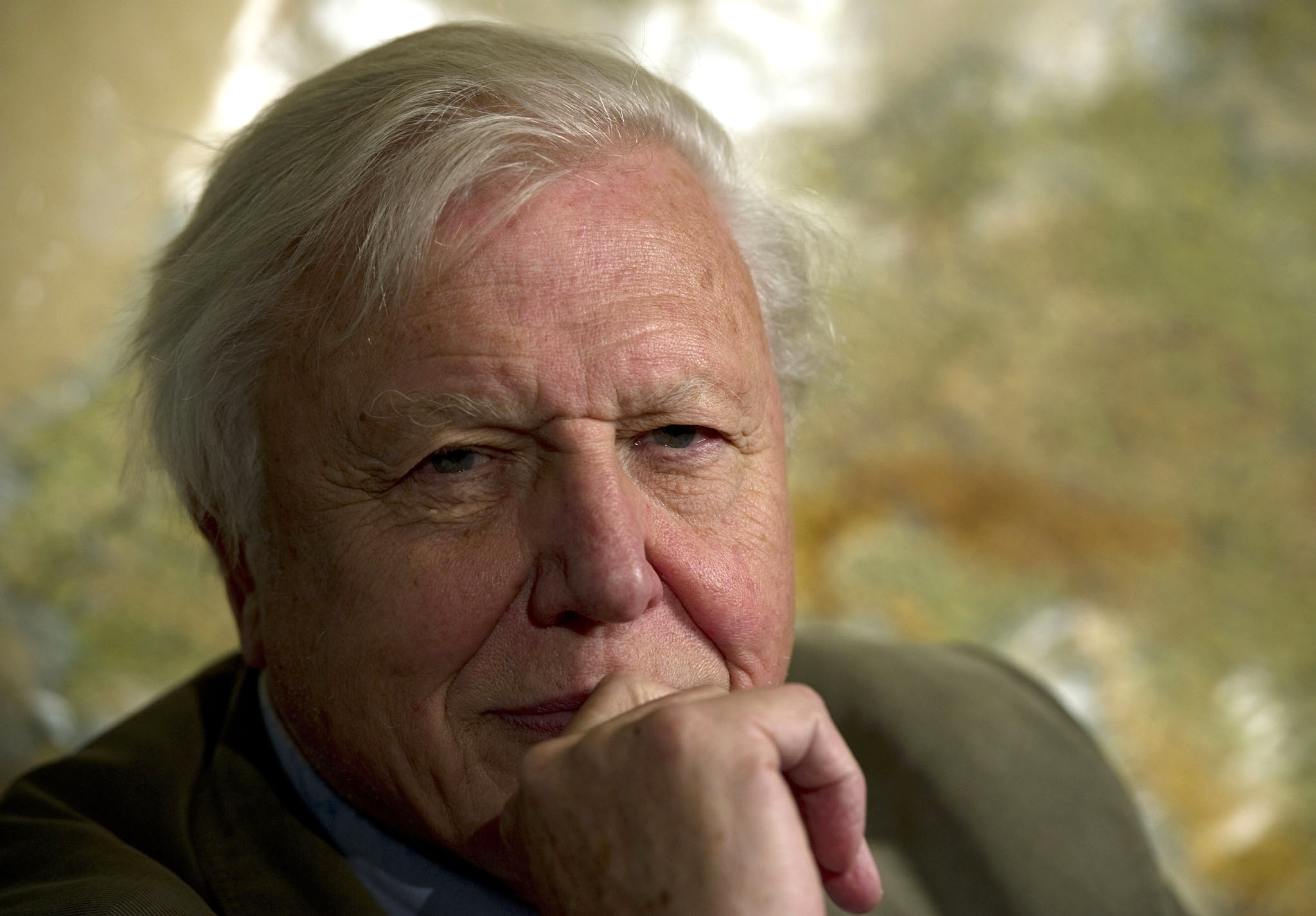Sir David Attenborough sounds population warning: 'Things are going to get worse' if humans have large families

Human beings have stopped evolving and should be persuaded not to have large families, TV naturalist Sir David Attenborough has said.
The broadcaster, 87, said that he was not optimistic about the future and that "things are going to get worse".
He said that he did not believe that humans will become extinct but told the Radio Times: "I think that we've stopped evolving. Because if natural selection, as proposed by Darwin, is the main mechanism of evolution - there may be other things, but it does look as though that's the case - then we've stopped natural selection.
"We stopped natural selection as soon as we started being able to rear 95 - 99 per cent of our babies that are born. We are the only species to have put a halt to natural selection, of its own free will, as it were."
Sir David told the magazine that human beings were still evolving in the cultural sphere.
"Stopping natural selection is not as important, or as depressing, as it might sound - because our evolutionary process is now cultural," he said.
"Humans have a great cultural inheritance as well as a physical, genetic inheritance - we can inherit a knowledge of computers or television, electronics, aeroplanes and so on.
"Each generation has got all these books that tell them these things, so our cultural evolution is proceeding with extraordinary swiftness."
The broadcaster said of the future: "I don't think we are going to become extinct. We're very clever and extremely resourceful - and we will find ways of preserving ourselves, of that I'm sure. But whether our lives will be as rich as they are now is another question.
"We may reduce in numbers; that would actually be a help, though the chances of it happening within the next century is very small. I should think it's impossible, in fact."

Watch Apple TV+ free for 7 days
New subscribers only. £8.99/mo. after free trial. Plan auto-renews until cancelled

Watch Apple TV+ free for 7 days
New subscribers only. £8.99/mo. after free trial. Plan auto-renews until cancelled
Speaking about the one-child policy in China, he said: "It's the degree to which it has been enforced which is terrible, and there's no question it's produced all kinds of personal tragedies. There's no question about that.
"On the other hand, the Chinese themselves recognise that had they not done so there would be several million more mouths in the world today than there are now."
He said: "If you were able to persuade people that it is irresponsible to have large families in this day and age, and if material wealth and material conditions are such that people value their materialistic life and don't suffer as a consequence, then that's all to the good.
"But I'm not particularly optimistic about the future. I think we're lucky to be living when we are, because things are going to get worse."
Sir David told the magazine: "I'm luckier than my grandfather, who didn't move more than five miles from the village in which he was born. I have all kinds of pleasures and luxuries that I appreciate and I'm very, very fortunate. I think that applies to the majority of people - in this country, at any rate.
"But I think that in another 100 years people will look back at a world that was less crowded, full of natural wonders, and healthier."
The broadcaster, who is presenting a two-part documentary on the ascent of man, Rise of Animals, on BBC2, had a pacemaker fitted in June but described the operation as "no big deal".
"When you're in your 80s, your heart gives you a funny five minutes every now and again and they won't insure you unless you have a cardiologist to say that you can go on a long-haul flight. So I had to have the pacemaker," he said.
The wildlife star, who previously had a knee replaced, said of the possibility of retiring: "I don't think so. If you've got a motorcar and its brakes fail, and you have the capacity to replace them, you replace them. And we have the capacity to replace knees, which is wonderful.
"I don't ever want to stop work. Sure, something's going to wear out some time and I won't be able to do it, but while I can - and people want me to, and people look at the result - I'm delighted to work. If I was earning my money by hewing coal I would be very glad indeed to stop. But I'm not; I'm swanning around the world looking at the most fabulously interesting things. Such good fortune."
PA
Join our commenting forum
Join thought-provoking conversations, follow other Independent readers and see their replies
Comments